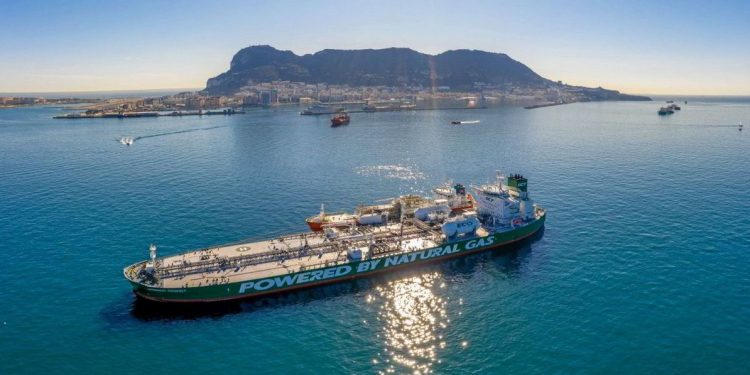Shell, the world’s largest trader of liquefied natural gas (LNG), is still involved in trading Russian gas over a year after vowing to withdraw from the Russian energy market. Analysis by campaign group Global Witness reveals that Shell was responsible for nearly an eighth of Russia’s shipborne gas exports in 2022.
Oleg Ustenko, an adviser to Ukrainian President Vladimir Zelensky, accused Shell of accepting “blood money” through its ongoing involvement in Russian gas trading.
Shell, however, asserts that these trades are a result of “long-term contractual commitments” and are in compliance with laws and sanctions. The company points out that it has already divested from Russian oil and gas by ceasing to buy Russian oil, selling its service stations and other businesses in Russia, and terminating its joint ventures with Gazprom, the state energy giant.
Despite these actions, Shell continues to purchase liquefied natural gas (LNG) from two Russian ports: Yamal and Sakhalin. Shell no longer receives gas from Sakhalin after abandoning its minority investment in the Sakhalin gas project. However, it still honors a long-term contract with Russian LNG company Novatek, obligating Shell to purchase 900,000 tonnes of LNG annually from Yamal until the 2030s.
Shell’s commitment to trading Russian gas has drawn criticism, particularly in light of the ongoing conflict between Russia and Ukraine. Oleg Ustenko argues that by trading Russian gas, Shell is effectively funding Russia’s aggression against Ukraine. He suggests that the profits made by Shell and the oil industry in Russia should instead be used to support the reconstruction of Ukraine.
In response, a spokesperson for Shell reiterated that the company’s actions comply with sanctions, laws, and regulations in the countries where it operates. The spokesperson highlighted the dilemma between pressuring the Russian government over its actions in Ukraine and ensuring stable energy supplies, noting that such trade-offs are decisions for governments to make.
While Shell’s trading activities are not subject to European sanctions, efforts are being made by EU politicians to reduce the amount of Russian LNG imported by the bloc. The call to halt the trading of Russian LNG is gaining momentum, with critics emphasizing the need to undermine Putin’s energy income as a concrete measure rather than a symbolic gesture.
The analysis by Global Witness also highlights the involvement of TotalEnergies, a France-based energy company that holds a minority stake in the Yamal project and is a major trader of Russian LNG.

